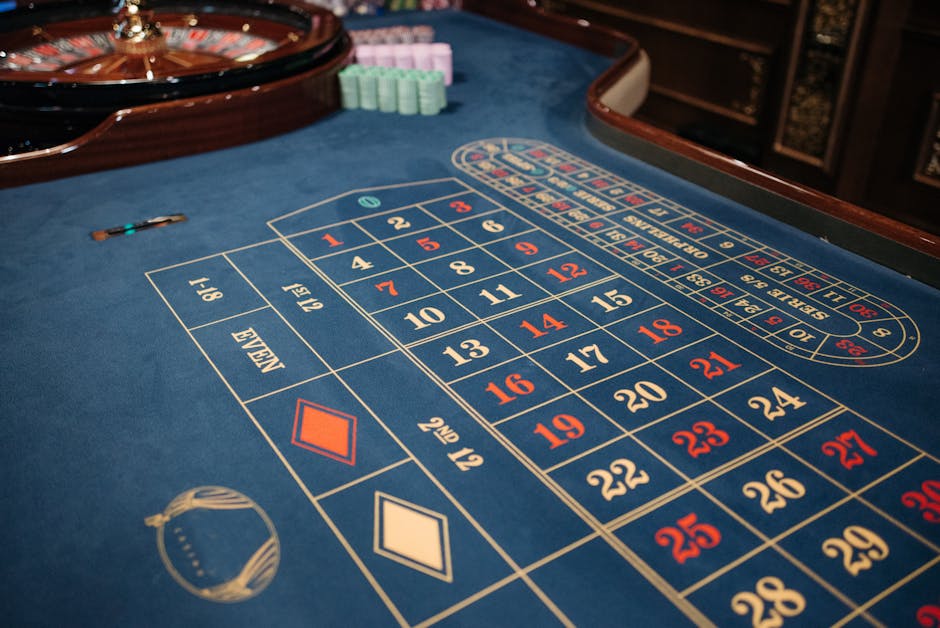The Truth About Online Slots
Most people step into online slots with the wrong expectations. They think there’s a pattern, a secret code, a way to outsmart the system. There isn’t. The house always has an edge—it’s how casinos stay in business. That edge might be small, but over time, it ensures the house comes out ahead. That doesn’t mean you can’t win. It just means you need to understand what you’re really playing against.
At the core of every slot machine is an RNG—Random Number Generator. It doesn’t remember your last spin. It doesn’t care how many times you’ve played. It just generates outcomes in real time, with zero emotion. So no, the machine isn’t “due” after a dry spell. You can’t predict the next spin, and you can’t trick the math.
Where you do have control is in how you play. Two key factors matter more than raw luck: volatility and RTP (Return to Player). Volatility is about risk. High volatility slots pay big but rarely. Low volatility slots pay small, more often. Choose based on your bankroll and patience. RTP, on the other hand, tells you what percentage of money wagered is paid back to players over time. An RTP of 96% means the game keeps about 4% on average. Look for higher RTP games if you want better long-term odds.
Slots aren’t about beating the system. They’re about playing with eyes open, knowing the rules, and using every advantage you can. And that starts with understanding what’s actually under the hood.
Strategy 1: Choose the Right Slot Game
Before you spin, know what you’re getting into. Volatility and payout tables give you a preview of how a slot game behaves—and how it fits your risk tolerance. Volatility measures how often a slot pays and in what amounts. High-volatility slots pay out less frequently, but when they do, it can be big. Low-volatility slots, meanwhile, hit more often, but the wins are smaller. Neither is better than the other—it just depends on your style and bankroll.
If you’ve got time and patience, high volatility might be your lane. You’ll need a bigger bankroll to ride out the dry spells. If you’re in for some steady action and lower risk, low-volatility games keep the energy up without draining your wallet too quickly.
Use payout tables to see symbol values, bonus rules, and feature triggers. They’ll show you how close (or far) that top prize really is. And don’t ignore RTP—Return to Player. It’s a percentage that tells you, on average, how much the game pays back over time. Look for slots with RTPs of 96% or higher. Some fan favorites: Starburst (low volatility, ~96.1% RTP), Dead or Alive 2 (high volatility, ~96.8% RTP), and Gonzo’s Quest (medium/high volatility, ~96%).
Bottom line: Know the math before the spin. Smart players don’t chase—they choose.
Strategy 2: Bankroll Management is Non-Negotiable
Keeping your finances in check is one of the few things you can control when playing online slots. While you can’t predict the outcome of each spin, you can decide how you manage your money—and that alone can make or break your long-term experience.
Set Win and Loss Limits Before You Play
Walking into a session without clear boundaries is one of the fastest ways to lose more than you intended.
- Win limits help keep emotions in check—stop while you’re ahead
- Loss limits prevent you from chasing losses, which often leads to bigger setbacks
- Stick to a dollar amount, not just time spent
Tip: Use built-in tools many online casinos offer to set these limits automatically.
Smaller Bets Go a Long Way
Instead of blowing your bankroll on a few high-stakes spins, spreading your money over more bets increases both playtime and potential for bonuses.
- Lower stakes = more spins = more chances to trigger bonus features
- Especially useful on high-volatility games where payouts are infrequent but substantial
- Keeps the game fun and reduces emotional pressure
Know When to Walk Away (and Actually Do It)
Having a stopping point is only half the battle—you need to stick to it. Whether you’re up or down, discipline separates smart players from emotional ones.
- After hitting your win goal, walk away to lock in profits
- If you’ve reached your loss limit, resist the urge to recover it then and there
- Create a routine: win, stop; loss, stop. No exceptions
By treating your bankroll with the same respect you’d give an investment, you not only protect your money—you enhance your chances of enjoying the game responsibly.
Strategy 3: Know When (and Where) to Use Bonuses
Welcome bonuses and free spins can be a solid head start—but only if you know how to use them right. The key is to look beyond the flashy numbers and get clear on the fine print. A $500 bonus sounds great until you realize it comes with a 40x wagering requirement and strings attached to specific games. Translation: you’ll need to bet $20,000 before you can withdraw a cent of that bonus money.
Start by reading the terms before you click ‘claim.’ Look for three things: wagering requirements (how much you need to bet with the bonus), max cashout limits (how much you’re allowed to actually keep), and any restrictions on which games count toward those wagers. Some platforms exclude high-RTP slots from bonus play, which makes clearing the requirement harder.
Stick to casinos with transparent policies and a track record of fairness. Providers like BitStarz, LeoVegas, and PlayOJO are known for offering competitive bonuses with clear terms. When in doubt, choose fewer strings over bigger numbers. A 50% match with 10x wagering usually beats a 200% bonus buried under 50x hurdles.
Free spins work the same way: check if winnings are capped or if you need to deposit before cashing out. No one wants to win $100 and find out you can only withdraw $10. Protect your bankroll by treating bonuses as tools—not traps.
Strategy 4: Timing and Session Discipline
Slot machines are designed for entertainment—but without proper timing and session limits, fun can quickly turn into frustration. Discipline around how long you play is just as crucial as choosing the right game or managing your bankroll.
Long Spins ≠ Long-Term Wins
It’s tempting to believe that the longer you spin, the higher your odds of winning. Unfortunately, that’s not how it works.
- Slot outcomes are governed by RNGs (Random Number Generators), ensuring every spin is independent.
- Playing longer doesn’t increase your chances—each spin has the same probability.
- More spins without limits often lead to chasing losses, which can spiral quickly.
The “Hot Machine” Myth
One of the oldest misconceptions in the slot world is the idea that a machine is ‘due’ for a payout.
- There is no pattern or payout cycle—RNGs prevent machines from “heating up” over time.
- Hot and cold streaks are just statistical randomness. Don’t build your strategy around them.
- Instead, focus on games with favorable RTP and set limits for your sessions.
Set Time-Based Boundaries
The key to playing smart is knowing when to log off. Keeping your sessions short and intentional helps maintain control over your gameplay.
- Pre-set time limits can prevent losses from piling up in long, unbroken sessions.
- Take frequent breaks. Mental fatigue often leads to poor decision-making.
- Decide on session goals (e.g., entertainment, testing a new slot, chasing bonus rounds) before hitting spin.
Pro Tip: Think of game sessions like gym workouts—too much at once leads to burnout and minimal results. Short, focused sessions increase your chances of playing more strategically over time.
Strategy 5: Learn from Other Real-Time Games
Slots may be automated and random, but that doesn’t mean experienced players can’t borrow lessons from live dealer and real-time casino games. These games emphasize strategy, timing, and emotional discipline—traits that are just as useful at the slot reels.
Skill-Building Parallels
Even though slot outcomes are determined by a Random Number Generator (RNG), being mindful of your play style can help you extend sessions and make smarter moves. Live dealer games, which require timing and decision-making, can help sharpen those instincts.
Here’s what transfers from live games to online slots:
- Patience pays off: Don’t chase losses or get reckless because of a losing streak. Measured pacing keeps your bankroll alive.
- Timing your bets: While you can’t control a slot spin, you can control your session length and bet consistency—avoid betting wildly out of frustration.
- Emotional control: Just like in poker or blackjack, emotional decisions rarely serve you well. The best results come from staying calm and focused.
Why It Matters for Slot Play
These crossover strategies help slot players build healthier gaming habits. You’re less likely to fall into impulsive cycles, and more likely to recognize when to cash out or call it a session.
Dive deeper: How to Master Live Dealer Casino Games
Final Thoughts: Play Smart, Not Hopeful
Let’s be clear—slot results are random. You can’t crack the code or develop a cheat. But randomness doesn’t mean recklessness. The way you approach the game determines whether you’re just spinning aimlessly or staying in control. Smart players don’t chase every flashing reel—they set parameters and stick to them.
The goal isn’t the rare jackpot. It’s playing with intent—making decisions that stretch your budget, increase your enjoyment, and minimize tilt. That’s how you walk away without regrets, win or lose. The winners aren’t lucky geniuses—they’re the ones who read the rules, manage their time, and take losses like lessons, not failures.
So play smart. Play sharp. Don’t depend on chance—control everything else you can.



